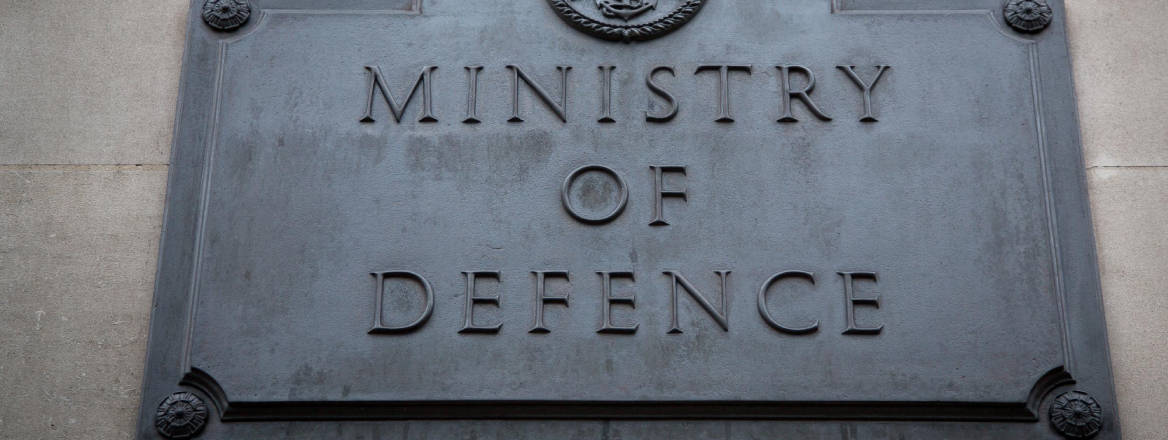UK Defence Budget: We Are Going to Need a New Financial Plan
The UK armed forces will have to wait for a financial settlement until the outcome of the National Security Capability Review. Until then, the budgetary problems at the Ministry of Defence will go unanswered.
The latest UK budget failed to address the financial problems at the Ministry of Defence (MoD). Indeed, there was no new money for national security, leaving the MoD with its existing financial woes.
So any new financial settlement must now wait for the outcome of the super-secret National Security Capability Review, currently being conducted in the Cabinet Office.
As highlighted by recent evidence sessions at the House of Commons Defence Committee, the process of that review remains unexplained and confusion reigns over the overall aim: is the objective to provide an honest reappraisal of the threats faced by Britain, or is it an exercise in cutting the defence cloth to a pre-ordained budget?
One response might be the creation of a single budget for national security, which would create a budget of over 2.7% of GDP
While mainstream media coverage of these aspects has been extensive, given the blunt warnings by former senior military figures to the Defence Committee recently, there is a question over how the government could break the current impasse over military spending budgets.
One response might be the creation of a single budget for national security. This would create a budget of over 2.7% of GDP and would include the money allocated for military spending, security services and intelligence agencies (the Single Intelligence Account).
Home Office security activity (the National Crime Agency, immigration enforcement, Border Force, the Office for Security and Counter-Terrorism and counter-extremism), the security fund (£1.5 billion) and overseas development aid (£10.5 billion) would also be included.
The ability to surge between spending lines in this way would build further on the conceptual successor to the Comprehensive Approach to UK Security; the integrated approach.
Further, directing Overseas Development Assistance (ODA) would be prioritised in areas associated with threats to national security and would allow some of the missions conducted by the military to draw directly on this budget, while still retaining the government’s commitment to international targets.
From a government perspective, a political appointee working within a currently defined cross-departmental structure would allow control to be exercised directly from Downing Street
Given the continued pressure from the US on NATO (and Allies) to do more, a headline figure of over 2.7% would put UK spending much closer to the US, and lead Europe’s by a considerable margin.
It would also make a statement to Allies that the UK was serious about post-Brexit security, and would be a strong signal to competitors about the nature of Britain’s deterrence posture.
So, who would control the single budget? From a government perspective, a political appointee working within a currently defined cross-departmental structure would allow control to be exercised directly from Downing Street.
As such, it is National Security Adviser Mark Sedwill, who would hold the reins of financial power from within the Cabinet Office, with support from the National Security Secretariat.
Given that he and they are running the review, and as appointees of Prime Minister Theresa May, this approach appears attractive and workable.
Yet such a plan would have significant issues.
First, while a 2.7% headline figure would send a clear political message, there would be a significant danger that it would only serve as a smokescreen for further capability cuts.
It would open the government to the same criticism as in 2014 when the UK started to include pension allocations in order to meet the 2% NATO targets. More headline spending does necessarily equate to greater security or more security capability.
Control of a significant budget by a single individual is not without precedent in Whitehall: the current NHS and the welfare budgets already exceed any potential security fund by some margin
Second, unless the allocation and prioritisation of the ODA budget is reworked, those who deliver security for the state would see no benefit.
Meeting both the definitions of ODA spending set by OECD, while allocating long-term cash to the military to build capability would be a complex problem. This is particularly true, given the government’s commitment to ODA after the much-publicised remarks made by Bill Gates at RUSI earlier this year.
Third, such an arrangement would only increase the distance between security chiefs and the decision-makers in Whitehall. While Downing Street might view the arrangement as a way of holding to account one person responsible for national security, the public might see him as a new mandarin for the government to blame if it all goes wrong.
Finally, the question of governance and scrutiny over allocations from a new-look security budget between subordinate agencies (including the military) would need to be addressed. Control of a significant budget by a single individual is not without precedent in Whitehall: the current NHS and the welfare budgets already exceed any potential security fund by some margin.
Unless careful balance is achieved, the military may once again be forced to focus internally rather than concentrating on outcomes
However, the National Security Adviser is a politically appointed civil servant. If Sedwill was to be the executive behind a security fund, providing oversight and preventing group-think would be necessary, which the Treasury could not provide.
This would require clearing a constitutional hurdle. Following a US model in such an arrangement has attractions: empowering the existing cross-party Commons Defence Committee by giving it additional powers for scrutiny and approvals might be a neat solution.
Yet even the creation of a significantly increased security budget from within an existing cash allocation will not solve the financial woes of HM forces. Indeed, it risks making them weaker still as critical people are further diluted to inform and lobby the new financial decision-makers.
Unless careful balance is achieved, the military may once again be forced to focus internally rather than concentrating on outcomes.
All the rhetoric says that the government ambition for defence and security in a more dynamic, less stable international security environment is significant, and presents an opportunity for global (and industrial) leadership over the coming five years.
As pointed out by Former Commander, Joint Forces Command Sir Richard Barron in evidence to the Defence Committee on 14 November, the reality is that a threat-based review would require a significant recapitalisation of the UK Armed Forces.
The revised figure of 2.7% might be realistic for maintaining the current military capability alone, but matching the security apparatus with the new threat environment would require a decade of spending significantly more.
The views expressed in this Commentary are the author's, and do not reflect those of RUSI or any other institution.
WRITTEN BY
Professor Peter Roberts
RUSI Senior Associate Fellow, Military Sciences


